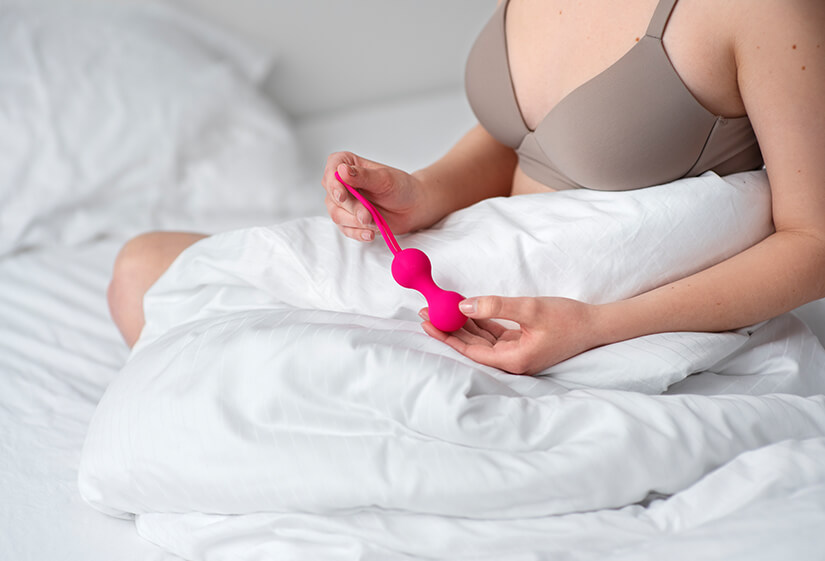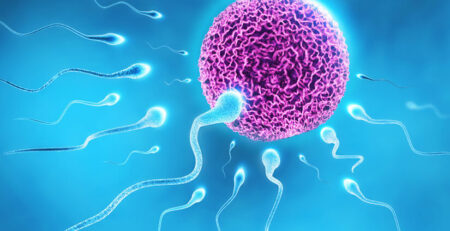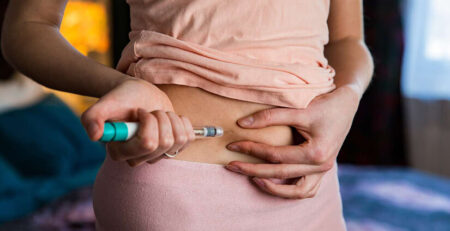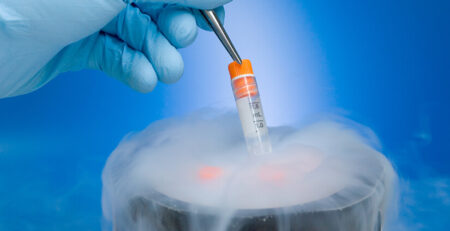Does Female Masturbation Cause Infertility?
In a society overflowing with sexual health misconceptions, the topic of female masturbation often becomes a focus point for myths, notably those about its influence on fertility. Such misunderstandings not only cause unnecessary anxiety but also obstruct open communication regarding female sexual well-being.
However, there is good news. Masturbation, regardless of your genitals, gender, or age, does not affect your capacity to conceive or carry a pregnancy to term.
In fact, masturbation has positive effects unless it is done in excess. So, in this blog, we will clarify the physiological aspects of female masturbation on infertility, debunk common misconceptions about causes of infertility in women, and reveal the true link between this act and reproduction.
Physiological Impact of Female Masturbation
Female masturbation, a sexual habit, includes self-stimulation of the genital area, which results in sexual excitement and, in many cases, orgasms. This act is more than just a source of instant pleasure; it activates complex hormonal groups that influence a woman’s physical and mental well-being. During masturbation, the body releases a combination of hormones. These hormones include:
Dopamine: Dopamine is commonly referred to as one of the “feel-good hormones.” It is linked to your brain’s motivation region, which generates emotions of pleasure and fulfillment when you engage in enjoyable activities.
Endorphins: Endorphins are natural pain relievers that also reduce tension and make you happier.
Oxytocin: Oxytocin, also known as the “love hormone,” plays a significant role in creating bonds between people. It fosters feelings of love and connection.
Testosterone: Testosterone is not just about muscle strength or aggression; it’s also released during sex and masturbation, ramping up sexual desire and endurance.
Prolactin: Prolactin contributes to milk production during nursing, but its impact extends beyond that. It also helps to regulate your mood and strengthen your immune system.
Here is an important thing that you need to remember: the boost in these hormones is only temporary. Engaging in masturbation doesn’t lead to lasting changes in your hormone levels, and they can’t be the cause of infertility in women.

Impact of Mastubarion on Ovultation
When it comes to the reproductive health of a woman, understanding the concept of ovulation is important. Ovulation is the part of the menstrual cycle where your ovaries release an egg each month. This egg then goes to the fallopian tube, where it waits for a sperm to meet for fertilization. If the egg meets a sperm, it undergoes fertilization to form an embryo, which attaches to the uterus, resulting in a pregnancy. If there is no sperm for fertilization, the body just disposes of the egg.
Now, when it comes to orgasms, things work a bit differently for men and women. During an orgasm, men release semen from the penis, which contains sperm necessary for fertilization. However, a woman’s ovulation process doesn’t need an orgasm to push out egg cells in the same way semen is ejected during a man’s orgasm.
So, if you are wondering whether female masturbation, which can lead to orgasm, can be the cause of infertility in women, the straightforward answer is no. Masturbating and having orgasms do not interfere with the ovulation process or affect a woman’s fertility in any negative way. If you are not ovulating, the reason might be due to PCOS. In that case, you should consult the fertility specialist at the IVF centre in Delhi.
Impact of Masturbation on Fertilization
Many people think eggs get fertilized right in the uterus, but that’s not how it works. The real action starts when an ovary releases an egg into the fallopian tube, where the egg and sperm meet up, and fertilization happens. After that, the fertilized egg travels down to the uterus.
Here’s a bit more about the journey to fertilization: Sperm have to swim to the fallopian tube, where they meet the egg. But it is not just about showing up; the sperm must also break through the egg’s outer layer to fertilize it. In all this process, timing is everything; the egg needs to have been released by the ovary and be present in the fallopian tube, waiting for sperm.
Now, regarding masturbation, it is important to know that it does not impact this fertilization process at all, obviously not a cause of infertility in women. Whether it’s the journey of the egg or the sperm, masturbation does not affect their roles or capabilities. That means masturbation is not a cause of infertility. It is a natural activity that does not interfere with a person’s ability to conceive.

Impact of Masturbation on Implantation
Let’s break down how conception works straightforwardly. A sperm cell from a man meets and fertilizes an egg released by a woman’s ovary; this magic happens in the fallopian tubes. After this moment of fertilization, the fertilized egg moves towards the uterus, where it aims to attach itself to the uterine wall, a process we call implantation. This crucial step typically occurs around six to seven days following ovulation.
However, sometimes, things don’t go exactly as planned. In some cases, the fertilized egg can’t travel to the uterus because of obstacles; instead, it implants itself in the fallopian tube. This situation is what’s known as an ectopic pregnancy, which is a complicated and potentially dangerous condition. In other scenarios, the fertilized egg might get to the uterus but then pass out of the body through the vagina without ever implanting.
Now, coming to the pain point, whether masturbation could potentially lead to an ectopic pregnancy or affect implantation, there is no scientific evidence to support this idea. So, rest assured, masturbation is considered a safe and normal part of sexual health that doesn’t negatively influence the complex and fascinating process of conception and implantation. If you cannot conceive, visit the best IVF centre in Delhi.
Impact of Masturbation on Mensural Cycles
People often connect menstruation and masturbation, primarily because the former can sometimes trigger bleeding. Interestingly, this usually happens when a period is just around the corner. Sometimes the contractions induced during masturbation may initiate spotting just premenstrually.
Also, as stimulation increases, the body starts to release hormones, including endorphin, known as the body’s natural painkiller. This release can significantly reduce the discomfort that comes with menstrual cramps and muscle aches, making masturbation a go-to for some women seeking relief during their period.
Impact of Masturbation on Pregnancy
Masturbation does not impact one’s ability to conceive. If one faces challenges with getting pregnant, the reason likely lies elsewhere. Factors such as your general health status, specific reproductive issues like polycystic ovary syndrome (PCOS), semen problems, issues with tubes or even certain lifestyle habits might be influencing your fertility.
It is generally okay to masturbate while pregnant, but there are exceptions, especially in high-risk pregnancies. For example, your fertility doctor may advise you to avoid sexual activity if:
- You are showing symptoms of preterm labour or have a history of it
- You have been diagnosed with conditions like placenta previa or an incompetent cervix
- You have experienced vaginal bleeding
When your doctor at the best IVF centre in Delhi recommends avoiding sexual activity during your pregnancy, it’s a good idea to clarify whether this caution extends to masturbation as well.
Myths Around Female Masturbation and Infertility
Let’s uncover the most common myths around female masturbation and the cause of infertility in women:
Myth 1: Masturbation weakens the uterus, which inhibits sperm movement.
Fact: When you experience an orgasm, your body secretes hormones such as oxytocin and dopamine, leading to uterine contractions. But here is a thing. These contractions are quite gentle and similar to those felt during typical sexual intercourse. They don’t permanently affect the uterus or the movement of sperm. Interestingly, research indicates that these mild contractions could actually assist in the sperm’s journey by guiding them nearer to the fallopian tubes, the site of fertilization.
Myth 2: Masturbation can reduce your egg count.
Fact: Eggs are produced throughout fetal development and gradually diminish with age. Masturbation does not affect the quantity or quality of the eggs accessible for fertilization.
Now, we have clearly seen that masturbation does not cause infertility in women. If masturbation is not the main culprit behind female infertility, then what are the causes of infertility in women? Several factors can lead to female infertility:
- Ovulation disorders like Polycystic ovary syndrome (PCOS)
- Endometriosis (growth of lining tissue of the uterus outside the uterus)
- Blocked fallopian tubes
- Uterine issues such as fibroids or polyps
- Hormonal imbalance
- Age-related factors
- Autoimmune diseases
- Lifestyle factors like smoking, too much alcohol consumption, and obesity
- Unexpected infertility
Now, based on these causes of infertility in women, your fertility doctor will prescribe treatment options like Intrauterine insemination (IUI), In vitro fertilization (IVF), donor eggs or sperm, surrogacy or surgery (laparoscopy or hysterectomy).
Wrapping Up!
Despite the ideas and hypothesis, thorough research and professional analysis have shown a reassuring truth: female masturbation has no harmful impact on fertility. If you are dealing with infertility, it’s better to consult with your fertility doctor, like Dr. Rhythm Gupta, to know the exact causes of infertility in women and determine the tailored treatment options.












